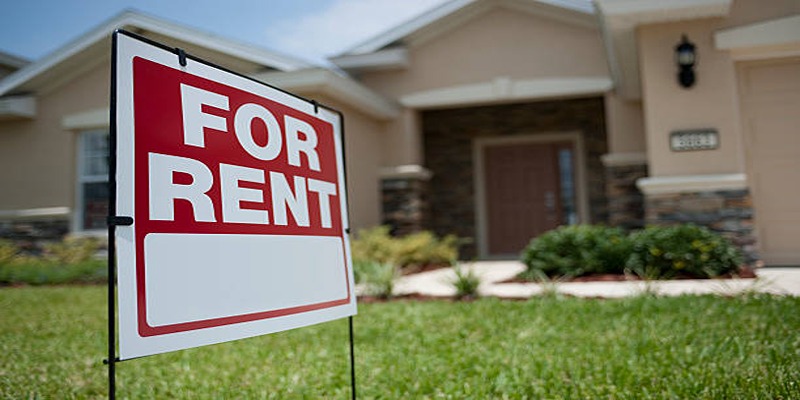How to Rent Out Your House: A Beginner’s Guide
House rental can provide additional income to homeowners who spend time correctly preparing their home for the rental market. Becoming a landlord creates both obligations and benefits while you either relocate to a different location or require mortgage payment or pick property investment as a goal. This guide provides foundation knowledge about renting houses by demonstrating steps for preparing your property and law enforcement procedures. Your property transformation into a revenue-generating asset will succeed when you follow the right steps.
Preparing Your House for Renters

You must perform several specific preparations before starting house rental searches. Before seeking tenants your property must pass inspections which will maintain both its quality standards and its adherence to current regulations.
Clean and Clutter
Your house cleaning effort should start by eliminating all clutter because it creates a more attractive appearance for potential renters. The appeal increases as well as understanding that potential renters gain when you maintain a well-discriminated area with uncluttered cleanliness according to your marketing guide. Owners must deal with all needed home repairs after delaying them.
Furnish or Unfurnished?
Decide whether you want to rent out your house fully furnished, partially furnished, or unfurnished. Furnishing your house can increase its rental value and attract long-term tenants who don’t want the hassle of moving in furniture. However, it also comes with the responsibility of maintaining the furniture and potential costs if items get damaged.
Set a Fair Rental Price
To determine a fair rental price for your house, research similar properties in your area to see what they are charging for rent. Consider factors such as location, size, amenities, and condition of the property. Setting a competitive price will help attract tenants and ensure that you’re earning a reasonable profit.
Finding Tenants
Once your house is ready for renters, it’s time to start looking for tenants. There are a few different ways to do this, and it’s important to choose the method that works best for you.
Advertising
One of the most common ways to find tenants is through advertising. You can list your property on rental websites, social media platforms, or local classifieds. When creating your listing, make sure to include attractive photos of the property and highlight its features. It’s also helpful to mention any specific requirements or restrictions, such as no pets allowed.
Engage Your Network
Another way to find tenants is by reaching out to your personal network. This could include friends, family members, coworkers, or acquaintances who may know someone looking for a place to rent. This method can be especially helpful if you’re looking for trustworthy tenants.
Hire a Property Management Company
If managing your rental property seems like too much work, consider hiring a property management company. They will handle finding and screening tenants, collecting rent, and taking care of any maintenance or repair issues. However, keep in mind that this will come with an additional cost.
Legal Requirements
As a landlord, it’s important to understand and comply with any legal requirements related to renting out your house. This can vary depending on where you live, so make sure to research the laws and regulations in your area.
Landlord-Tenant Laws
Landlord-tenant laws govern the rights and responsibilities of both parties in a rental agreement. These laws cover areas such as lease agreements, rent payments, security deposits, eviction procedures, and more. It’s crucial to familiarize yourself with these laws to avoid any legal issues.
Insurance
You may also need to update your insurance policy to cover renting out your house. This could include landlord insurance, which can protect you from potential damages caused by tenants or other incidents that may occur on the property.
Taxes
Renting out your house will likely have an impact on your taxes. Make sure to consult with a tax professional or do thorough research on how rental income is taxed in your area. You may also be eligible for certain deductions related to rental expenses.
How to Be a Good Landlord
Being a good landlord goes beyond just finding and managing tenants. It involves maintaining a positive and professional relationship with your renters by providing timely responses to any issues or concerns, respecting their privacy, and keeping the property in good condition.
Regular Maintenance
Part of being a responsible landlord is ensuring that the property is well-maintained. This includes addressing any repair requests in a timely manner and conducting regular inspections to catch any potential problems before they escalate.
Communication
Effective communication is key to being a good landlord. Make sure to establish clear lines of communication with your tenants, whether it’s through email or phone calls. This will help address any issues promptly and keep the relationship with your tenants positive.
Know Your Rights and Responsibilities
As a landlord, it’s important to know your rights and responsibilities. This includes understanding the terms of your lease agreement, complying with landlord-tenant laws, and respecting the rights of your tenants. Knowing these boundaries will help prevent any conflicts or misunderstandings.
Tips for Successful Renting

Screen Potential Tenants Carefully
When it comes to choosing tenants, it’s important to be thorough and selective. You want someone who will take care of your property, pay rent on time, and not cause any problems. Consider conducting background checks, checking references, and asking for proof of income to ensure you’re making the right choice.
Have a Solid Lease Agreement
A comprehensive lease agreement is essential for protecting yourself as a landlord. It should outline all terms and conditions of the rental relationship, including rent amount, length of lease, rules and regulations, and any other important details. Make sure both parties fully understand and agree to the terms before signing.
Keep Good Records
It’s crucial to keep detailed records of all transactions related to your rental property. This includes rent payments, repairs and maintenance, legal documents, and communication with tenants. These records will come in handy for tax purposes or in case of any disputes.
Be Proactive
Don’t wait for issues to arise before addressing them. Conduct regular inspections, maintain open communication with your tenants, and address any problems as soon as they’re brought to your attention. Being proactive can save you time, money, and headaches in the long run.
Conclusion
Renting out your house can be a profitable venture if done correctly. By following these steps and staying informed about legal requirements, you can become a successful landlord. Remember to always prioritize maintaining a good relationship with your tenants and keeping your property in top condition for a smooth and rewarding renting experience. So don't hesitate to put in the necessary work and take advantage of this opportunity to generate income from your property.











